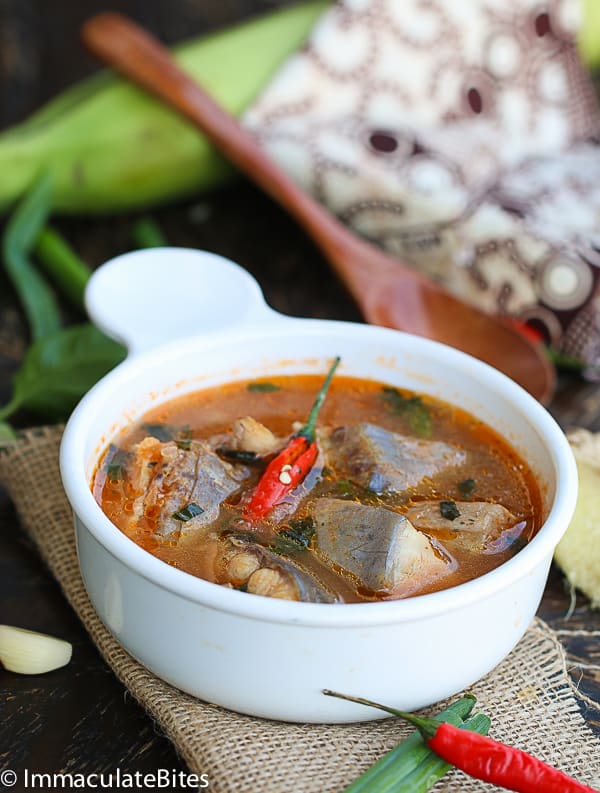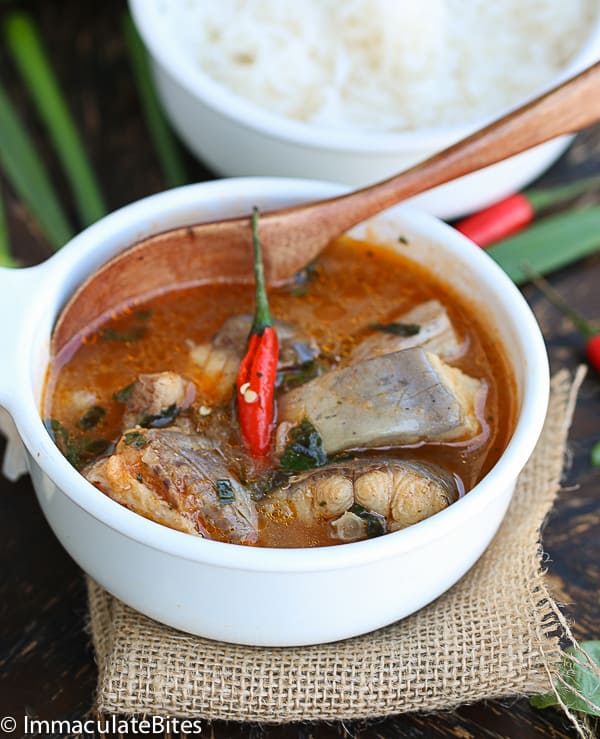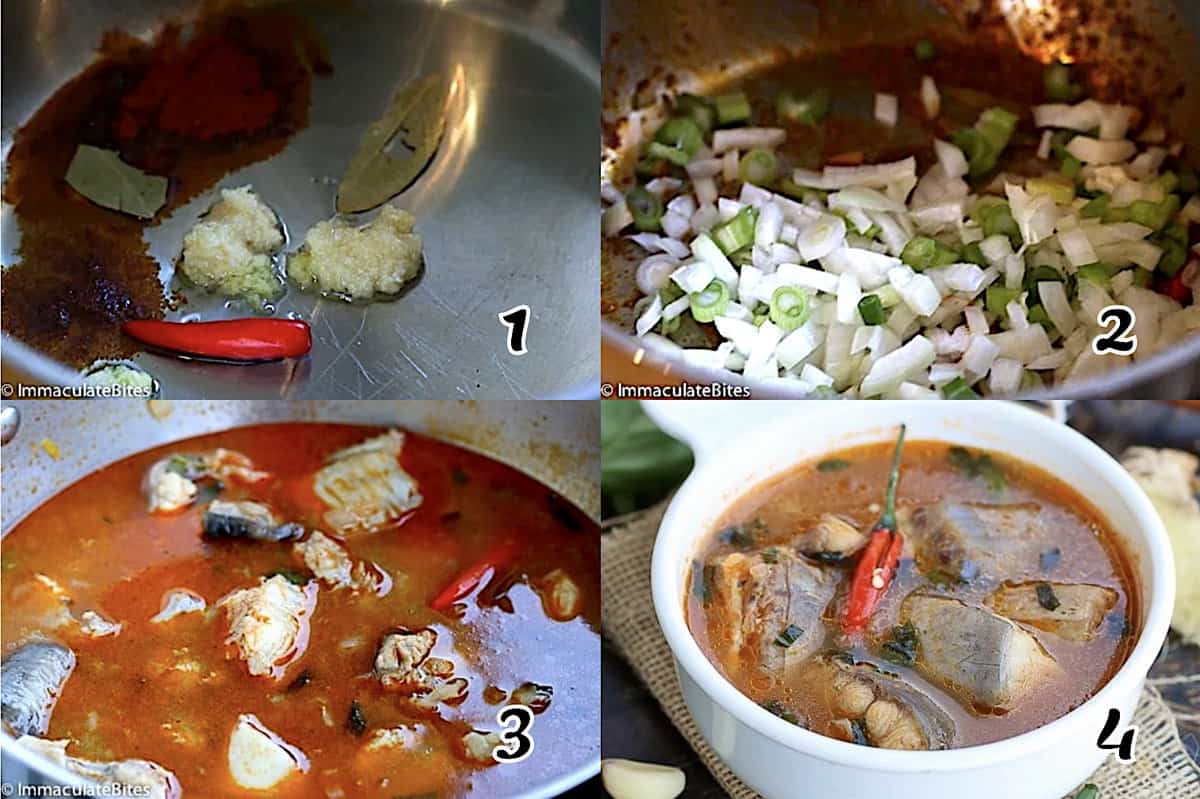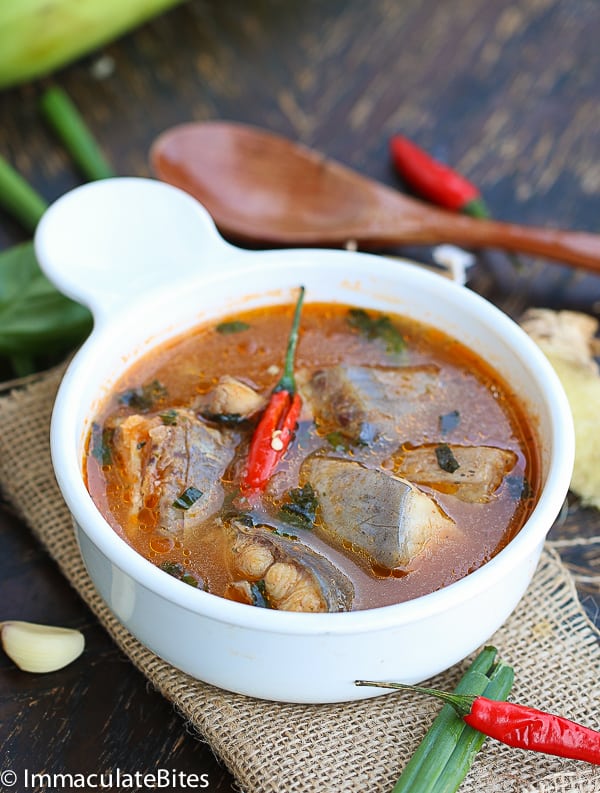Fish pepper soup provides spicy, comforting, and flavorful goodness with fresh fish, warming spices, and vibrant herbs. This West African staple is known for its spicy kick, thanks to Scotch bonnet peppers. Its aromatic base often includes ginger, garlic, and locally available spices.

Traditionally an appetizer or main course, we love fish pepper soup for its invigorating heat and restorative qualities. This Lenten must-have is perfect for cooler weather or whenever you’re craving something hearty that won’t weigh you down. Utter simplicity with fresh ingredients builds layers of flavor in a short time.
Plus, this African fish soup is so easy to adapt to personal preferences, including the spice level. It’s one of those recipes you can switch up every time you make it, depending on what’s in your fridge and how you feel that particular day.
Which Fish Works for Fish Pepper Soup?
Any firm white fish will work well in this pepper soup. You can use tilapia or croaker, but catfish pepper soup is quite popular! Use your favorite fish or whatever you have on hand. Cameroonian and Nigerian pepper soups are similar.

How to Make Fish Pepper Soup

Traditional Method
- Bloom the Spices – Heat a saucepan with about a tablespoon of oil, then add the garlic, ginger, bay leaf, paprika, and hot pepper. Sauté everything for about a minute. (Photo 1)
- Add Flavor – Next, throw in the onions, celery, white pepper, green onions, bouillon powder, and other spices. Continue stirring for another minute. (Photo 2)
- Simmer – Add 3-4 cups of water and bring it to a boil. Let it simmer for about 10 minutes. (Photos 3-4)
- Fish – Add the fish, basil, and salt. Continue cooking until the fish is cooked (10 minutes or more), adding more water if necessary.
- Adjust – Give it a taste test and adjust the seasonings and thickness of the soup with water and spices. Remove the bay leaf.
- Serve with boiled green plantains, rice, or on its own. (Photo 4)
Quick Method
- Spices – Place all the spices (except the bay leaf) in a blender or food processor. Pulse until everything is pureed.
- Simmer – Place the blended spices in a saucepan with the bay leaf, then add 3-4 cups of water. Bring to a boil and simmer for around 10 minutes. Next, add the fish and continue cooking until the fish is cooked through. Discard the bay leaf.
- Adjust for seasonings and thickness as needed.
- Serve hot. Enjoy!
Flavor Variations
- Add other seafood. A seafood medley adds different textures and flavors, making it an even better special occasion dish.
- Make it creamy. Add coconut milk to give this soup a creamy texture with a rich and slightly sweet flavor.
- Thicken it. You can thicken this soup with blended vegetables like tomatoes and onions, giving it a light, stew-like consistency.
- Add extra depth. Use fish or chicken stock as your base rather than plain water. Homemade broth adds a subtle richness, making the soup even more flavorful.
Recipe Notes
- Fresh fish is key for flavor and texture. Fresh frozen also works. Opt for firm, white-fleshed fish like tilapia, catfish, snapper, or sea bass. 🐟
- Fish with bones enhances the soup’s flavor, but filets work well for a more refined version.
- Scotch bonnet or habanero peppers are traditional for intense heat, but can easily overpower the dish. Start with a small amount, and add more to taste. For a milder soup, remove the seeds from the peppers or use only half.
Make-Ahead and Storage Instructions
To make this dish ahead of time, cook the broth, then refrigerate or freeze it. That way, the flavors meld for an even more flavorful base. When you’re ready to serve, reheat the broth until it’s gently simmering, then add fresh fish pieces and cook until done. Doing so prevents the fish from becoming too soft or losing its delicate texture.
Transfer leftover fish pepper soup with fish already in it to an airtight container and refrigerate. It can last in the fridge for 2-3 days. Keep in mind that the fish may soften slightly over time, but the flavor should remain delicious.
Gently reheat the fish pepper soup on the stovetop over medium heat to avoid overcooking the fish. You could also add a splash of water or stock if the broth has thickened.
What Goes With Fish Pepper Soup
Fish pepper soup pairs beautifully with traditional fufu for an authentic experience. For an extra touch, pair it with njama njama (stir-fried greens) to keep the meal rooted in African flavors. Alternatively, you can serve it with a tossed salad and crusty garlic bread for an American twist.
More Spicy African Soup Recipes to Try
Africa boasts many soup recipes, and here are just a few.
By Imma
Watch How to Make It
[adthrive-in-post-video-player video-id=”v88DcDRf” upload-date=”2019-11-20T11:16:51.000Z” name=”Fish Pepper Soup” description=”Fish Pepper Soup – A quick and easy robustly flavored African Fish Soup.” ]This blog post was originally published in February 2015 and has been updated with additional tips, new photos, and a video
Source link










